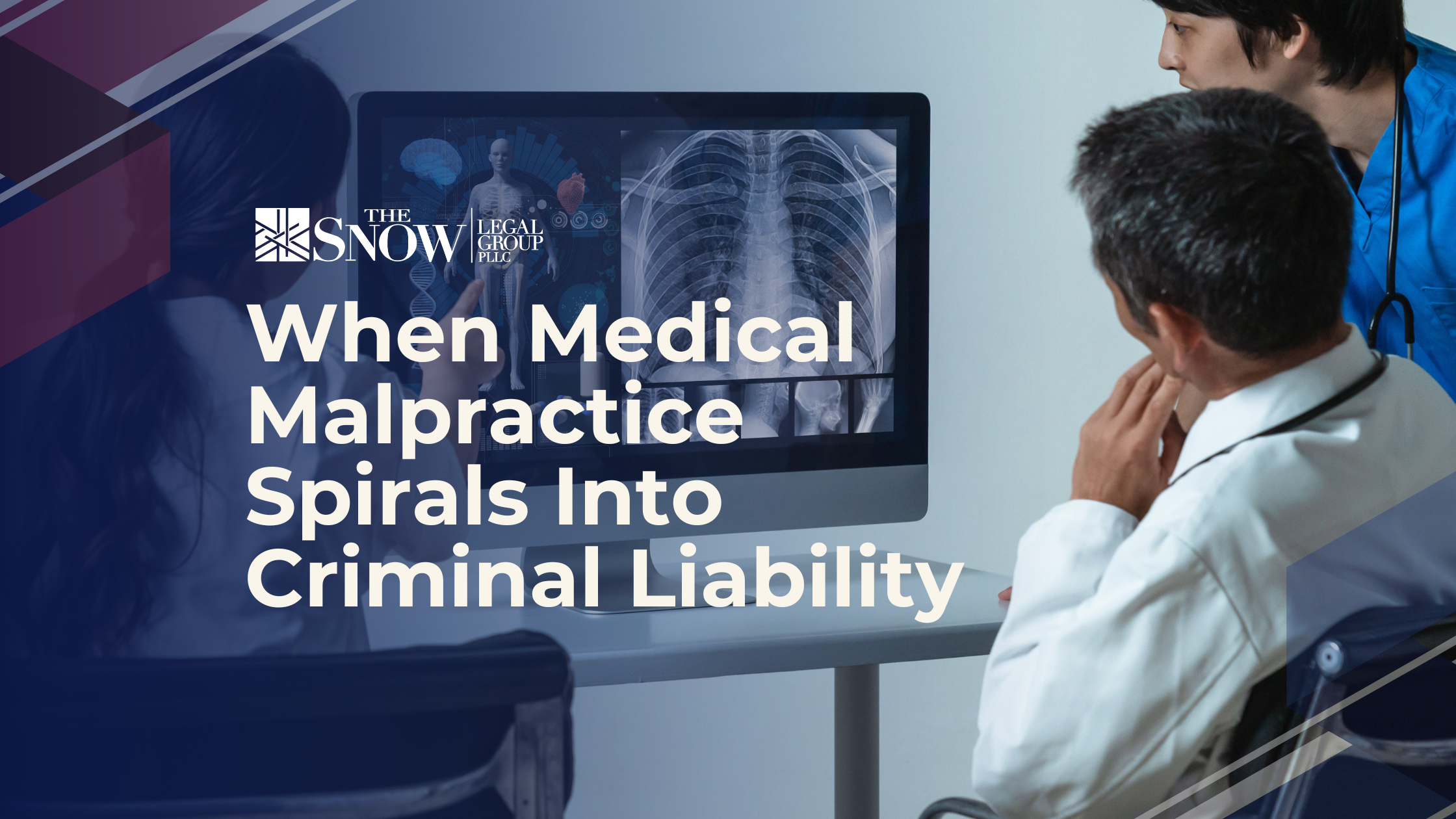
When healthcare professionals deal with legal challenges, the stakes are high and the consequences serious. When there’s a question of medical malpractice or criminal liability, the outcome can drastically affect their career, reputation, and the well-being of patients. While these terms are often heard in legal disputes involving healthcare, they represent very different scenarios with distinct legal frameworks and consequences.
Medical Malpractice
Medical malpractice occurs when a healthcare provider fails to deliver the standard of care expected in the medical community, leading to patient harm. This standard is a benchmark representing the level of skill, care, and diligence that a qualified healthcare professional, with a similar background and in the same community, would reasonably provide under comparable circumstances.
For a claim of medical malpractice to hold, it must be established that the healthcare provider acted negligently, meaning they deviated from this standard of care in a way that no competent professional would under the same conditions. The negligence must directly result in harm to the patient, causing physical pain, mental distress, extra medical expenses, or lost income. These cases are civil in nature, aimed at compensating the injured party, rather than punishing the provider.
Criminal Liability
Criminal liability in healthcare emerges not just from negligence but from actions that demonstrate a grave indifference to patient safety, such as recklessness or intentional harm. These actions reflect a significant departure from responsible care, showing a deliberate disregard for the life and health of patients.
Criminal charges in the medical field are typically pursued by the government and are intended to penalize the offender, serving as a warning to others. This path is taken when the actions in question are so severe that they warrant public action, often in cases leading to death or serious injury. For instance, a healthcare provider might face criminal charges for deliberately giving a patient a harmful substance, grossly neglecting a patient’s needs, or falsifying records to conceal mistakes.
What to Do When Your Freedom Is in the Balance
The distinction between medical malpractice and criminal liability is primarily in the intent and severity of the negligence involved. Medical malpractice is about failing to meet care standards, often due to error or systemic issues, while criminal liability involves conscious, hazardous conduct meant to harm, or acting with a blatant disregard for safety.
These differences also influence the legal process and outcomes. Medical malpractice suits are about rectifying personal harm through financial compensation, whereas criminal cases focus on punishing detrimental actions to safeguard the community.Need to discuss your case confidentially, and in detail? Let us help you understand your legal options and work towards a favorable resolution by scheduling a consultation. Your professional integrity, rights, and future are of paramount importance, and at The Snow Legal Group, PLLC, we are committed to advocating on your behalf with diligence and professionalism.